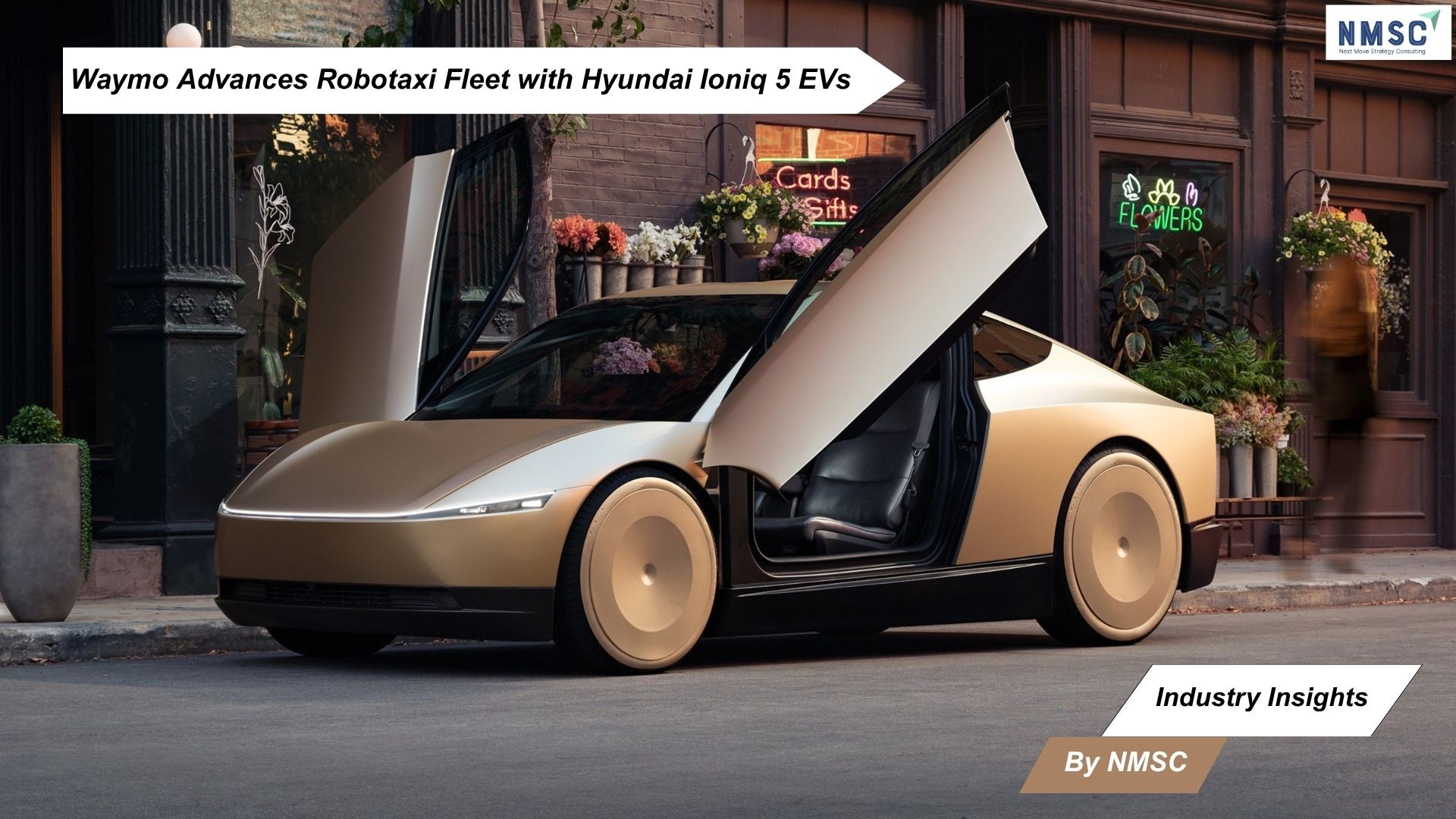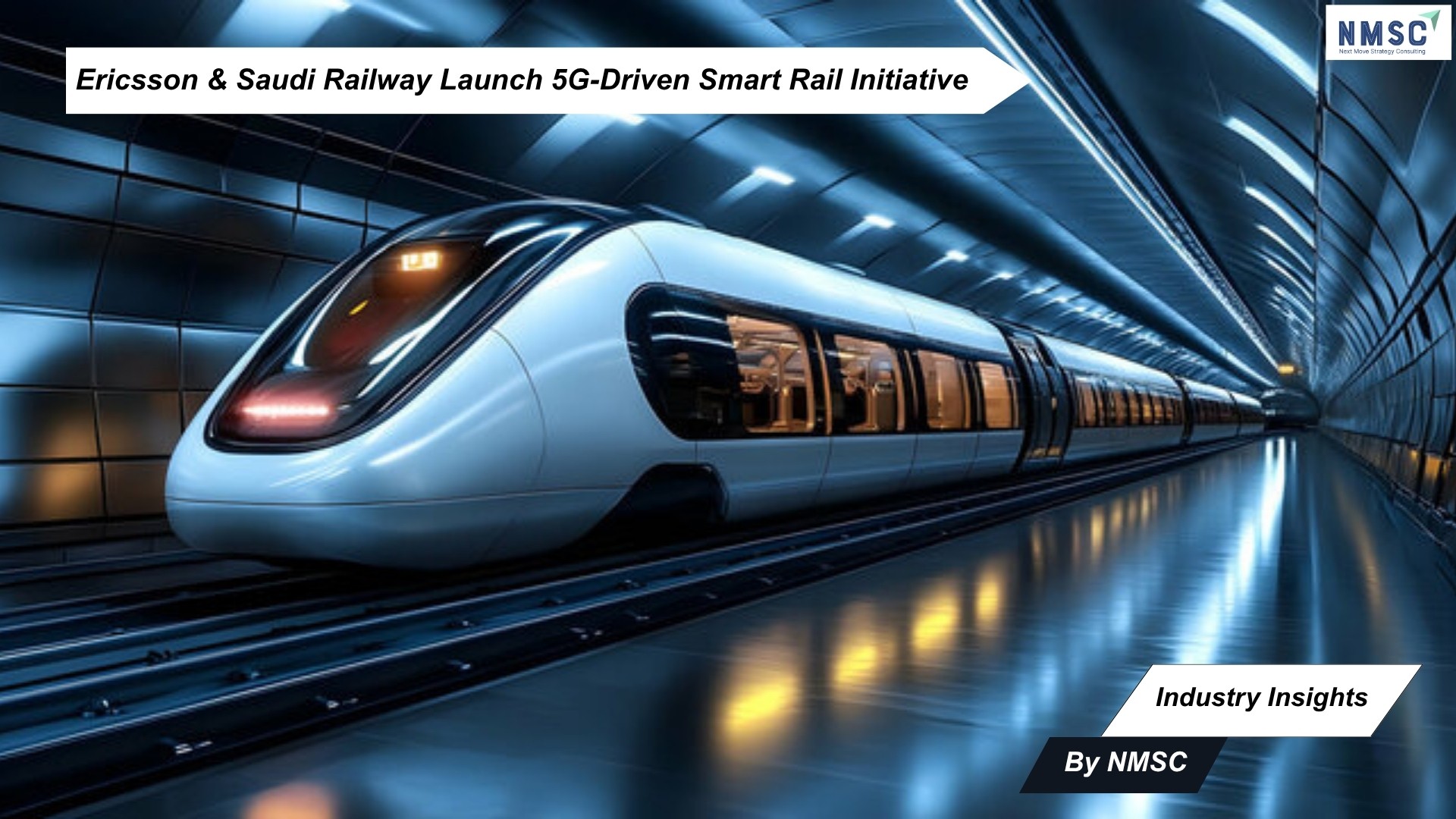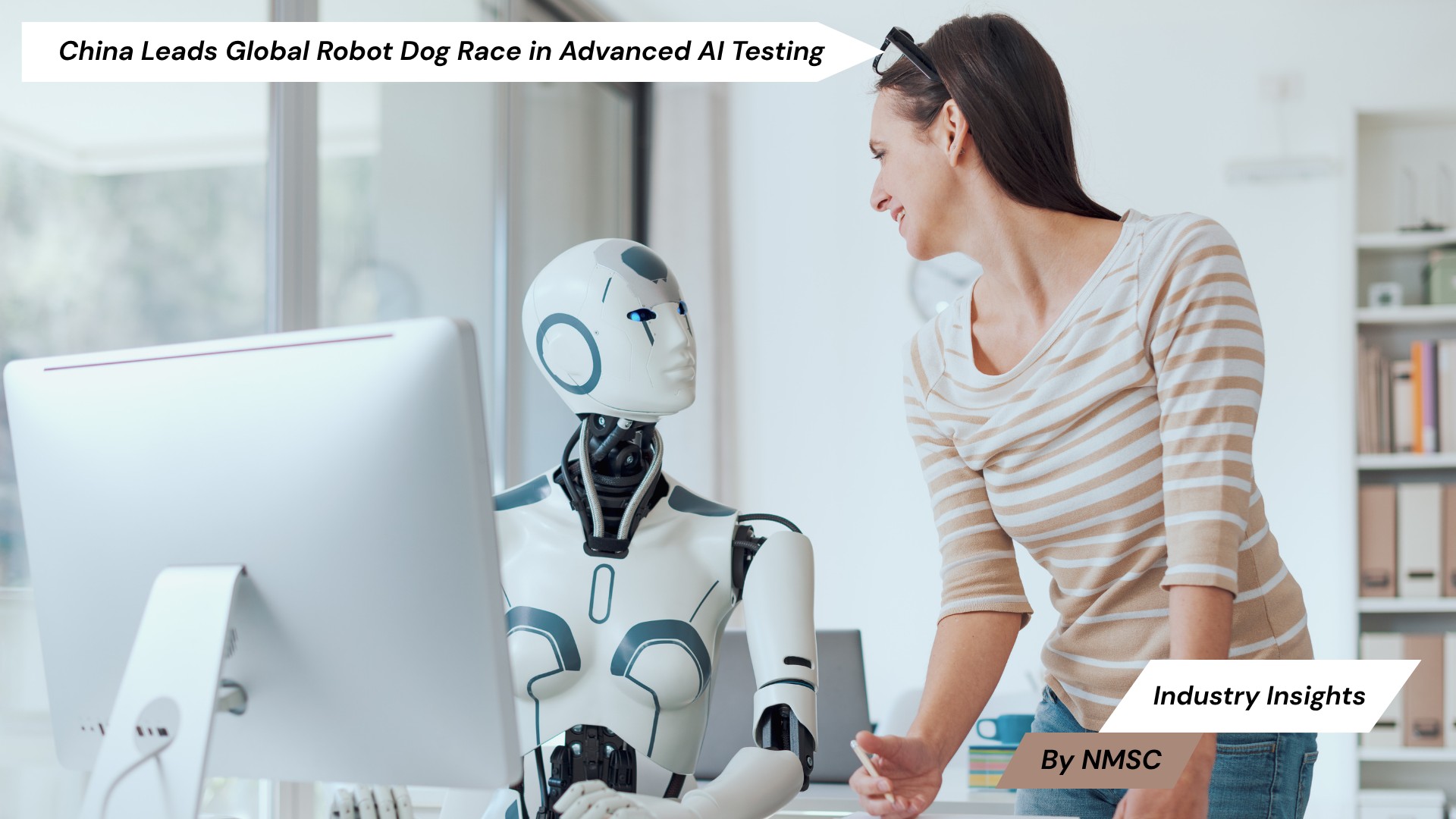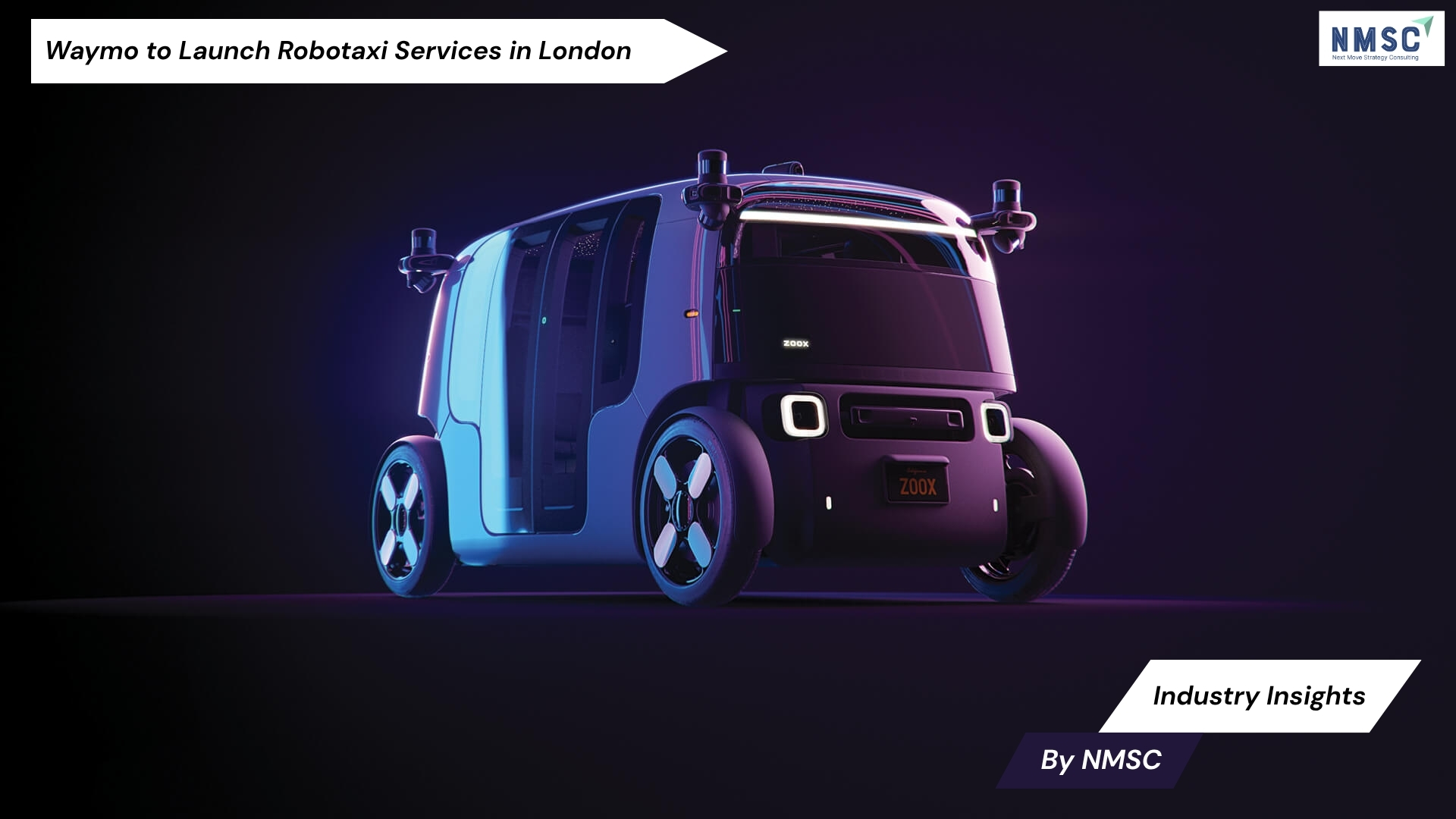Waymo Advances Robotaxi Fleet with Hyundai Ioniq 5 EVs
Published: 2025-11-17

Industry Insights from Next Move Strategy Consulting
Waymo’s transition to an all-new generation of autonomous vehicles has taken a major step forward as the company begins road-testing the Hyundai Ioniq 5 EV, solidifying what it calls a multi-year strategic partnership with Hyundai. With testing now underway in San Francisco and large-scale production planned at Hyundai Motor Group Metaplant America in Georgia, the initiative marks a decisive evolution in Waymo’s robotaxi roadmap.
A Strategic Upgrade to Modernize an Aging Fleet
For years, Waymo has relied on earlier-generation platforms, moving from its original Chrysler Pacifica models to the Jaguar I-Pace — a vehicle that has since been discontinued. The introduction of the Hyundai Ioniq 5 represents a pivotal opportunity to modernize its fleet with vehicles purpose-built for autonomy and equipped with Waymo’s sixth-generation self-driving system.
Each Ioniq 5 will integrate an array of 13 cameras, six radars, four lidar sensors, and microphones, forming the backbone of the company’s next-phase autonomous capabilities. Both companies have confirmed that these vehicles will be produced at “significant volume over multiple years” as demand scales with Waymo’s expansion.
“We are thrilled to partner with Hyundai as we further our mission to be the world’s most trusted driver,” said Waymo co-CEO Tekedra Mawakana. “Hyundai’s focus on sustainability and strong electric vehicle roadmap makes them a great partner for us as we bring our fully autonomous service to more riders in more places.”
Momentum Builds as Waymo Targets Wider U.S. Coverage
Waymo has already marked a strong year with launches in several new markets and expanded service zones across existing cities. The company has made clear that its refreshed fleet will play a central role in supporting its ambitious goal: operating in at least 12 U.S. cities by the end of 2026.
Among the upcoming locations are Las Vegas, Detroit, and San Diego, alongside continued growth in markets where Waymo already maintains a presence. The company has also set its sights on international expansion, announcing that its driverless taxis will enter the United Kingdom, with London identified as its first destination.
Technology Designed for Scalable Robotaxi Operations
Waymo’s sixth-generation approach reflects its long-term strategy of integrating more refined sensing hardware while enabling higher reliability across complex urban environments. The Hyundai partnership complements this by offering a stable EV Charging platform aligned with sustainability goals and ready for automated manufacturing.
The collaboration also ensures that Waymo’s next wave of robotaxis will be consistently produced at scale — a critical requirement as the company prepares for rapid deployment across new territories.
Next Move Strategy Consulting’s View
According to Next Move Strategy Consulting, Waymo’s transition to the Hyundai Ioniq 5 reflects several defining trends shaping the global robotaxi market, including the industry-wide shift toward fleet modernization as operators replace aging vehicles with platforms designed for long-term autonomous performance. The firm notes that multi-year alliances between technology companies and automotive manufacturers—such as the Waymo-Hyundai partnership—are becoming essential for achieving production scale, streamlining hardware-software integration, and accelerating deployment timelines. This move also underscores growing market confidence, as robotaxi providers increasingly target multi-city expansion rather than limited pilot programs. Furthermore, the use of advanced electric vehicle architectures paired with next-generation autonomous systems is emerging as a critical driver of operational efficiency and cost optimization, positioning scalable EV-autonomy platforms at the center of future robotaxi growth.
Shaping the Next Era of Autonomous Mobility
With road-testing already underway and production plans aligned with its long-term strategy, Waymo’s integration of the Hyundai Ioniq 5 marks a decisive moment for the robotaxi sector. The initiative reflects both companies’ commitment to advancing autonomous mobility, improving service reliability, and preparing for wider urban deployments.
As Waymo eyes expansion across the United States and toward international markets, its evolving fleet stands to play a defining role in shaping the future of driverless transportation.
Sources: Supercarblondie
Prepared by: Next Move Strategy Consulting
About the Author
 Tania Dey is a highly experienced Content Writer and a passionate SEO Executive with a specialized focus on digital transformation, technology trends, and industry-focused insights. She has honed her expertise in creating compelling, data-driven content that not only enhances online visibility but also aligns with the ever-evolving demands of modern business landscapes. Her work spans a diverse range of industries, including technology, and digital services, enabling organizations to communicate their vision and value propositions effectively to both niches.
Tania Dey is a highly experienced Content Writer and a passionate SEO Executive with a specialized focus on digital transformation, technology trends, and industry-focused insights. She has honed her expertise in creating compelling, data-driven content that not only enhances online visibility but also aligns with the ever-evolving demands of modern business landscapes. Her work spans a diverse range of industries, including technology, and digital services, enabling organizations to communicate their vision and value propositions effectively to both niches.
About the Reviewer
 Debashree Dey is a versatile Content Writer, PR Specialist, and Assistant Manager in Digital Marketing, known for her ability to craft audience-focused narratives and develop data-driven strategies that enhance brand visibility. As a published manuscript author, she combines creativity
with strategic acumen to help brands strengthen their presence and drive deeper user engagement. Outside of her professional pursuits, Debashree draws inspiration from creative projects and design explorations.
Debashree Dey is a versatile Content Writer, PR Specialist, and Assistant Manager in Digital Marketing, known for her ability to craft audience-focused narratives and develop data-driven strategies that enhance brand visibility. As a published manuscript author, she combines creativity
with strategic acumen to help brands strengthen their presence and drive deeper user engagement. Outside of her professional pursuits, Debashree draws inspiration from creative projects and design explorations.
















Add Comment